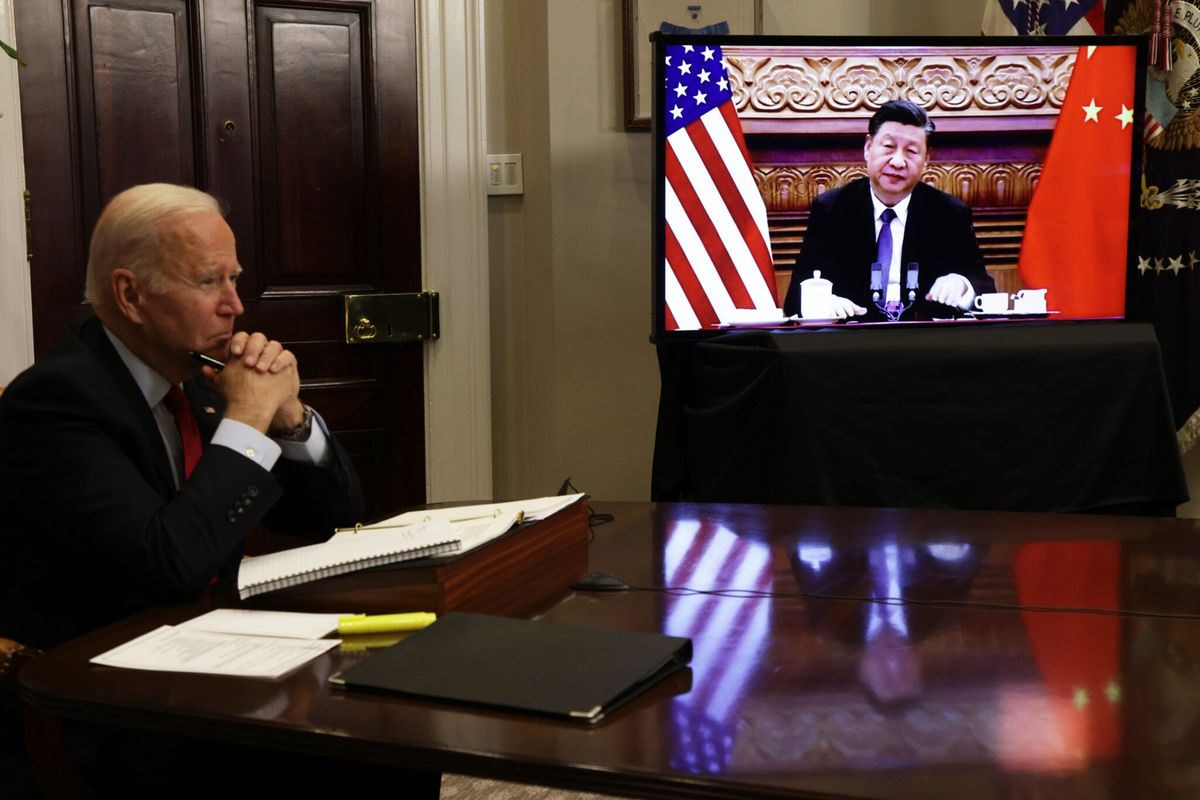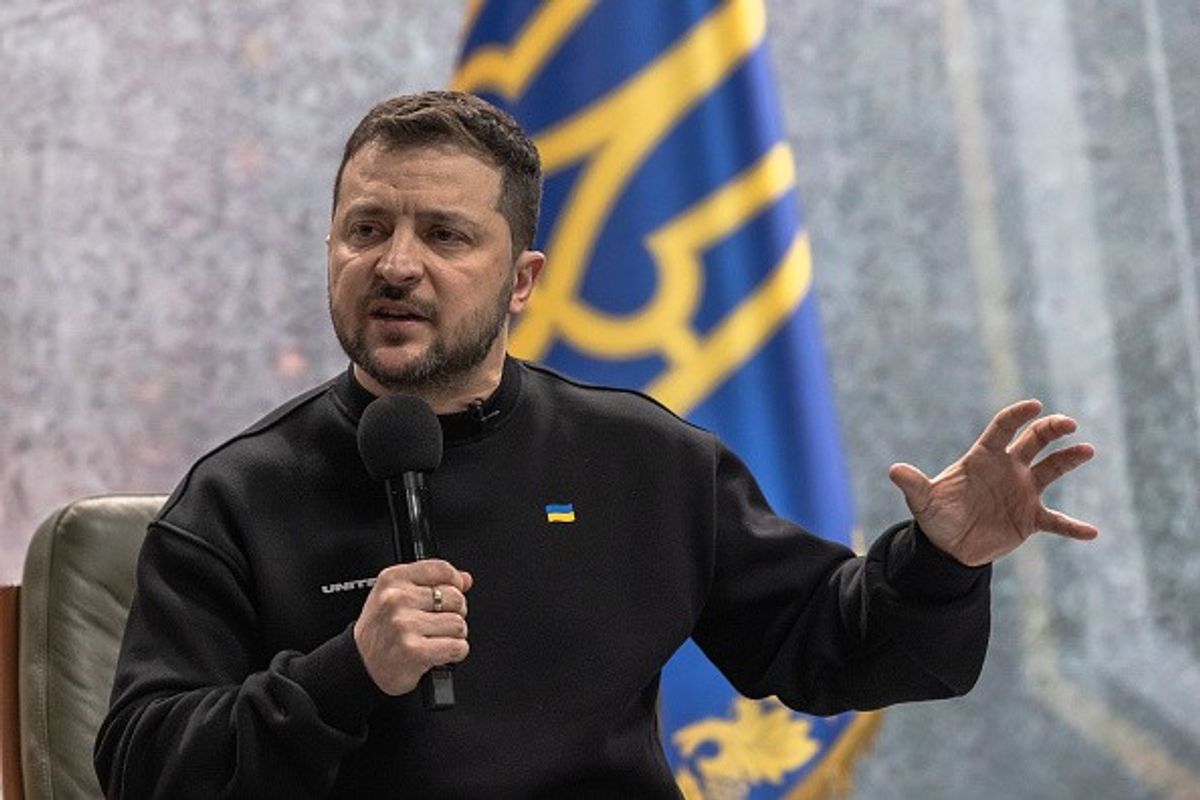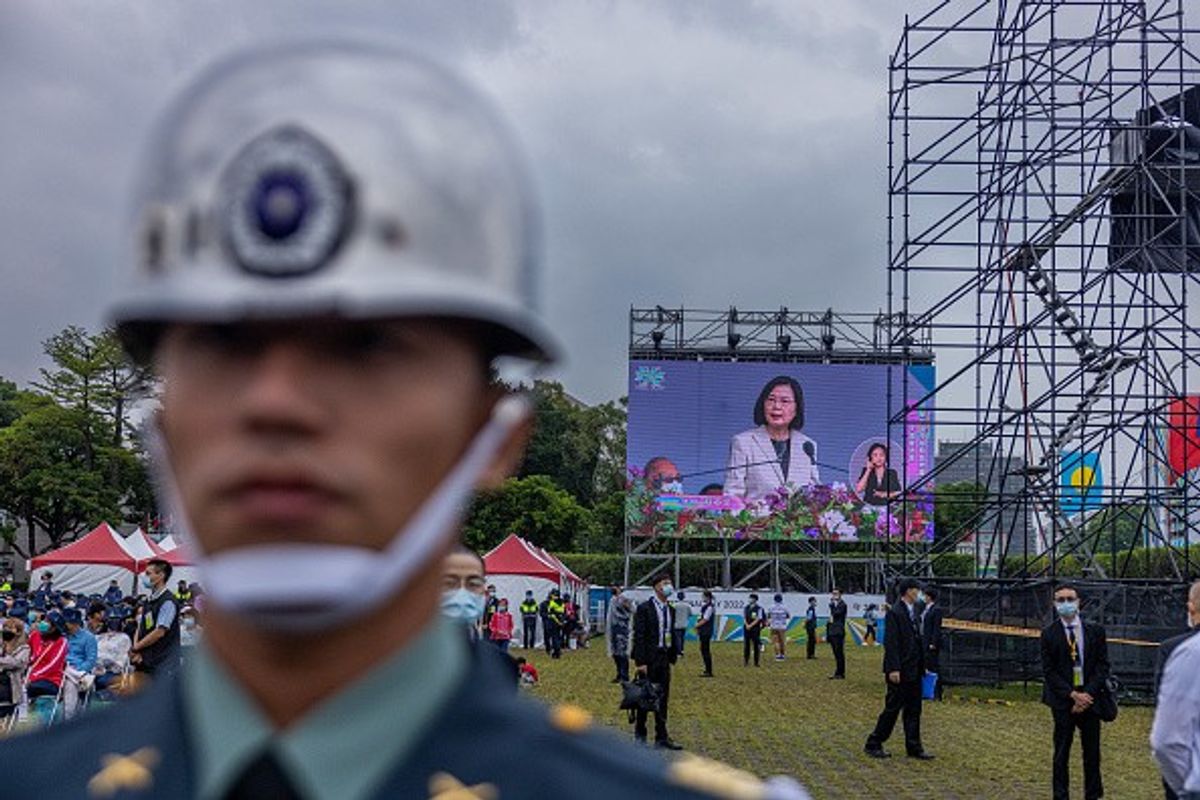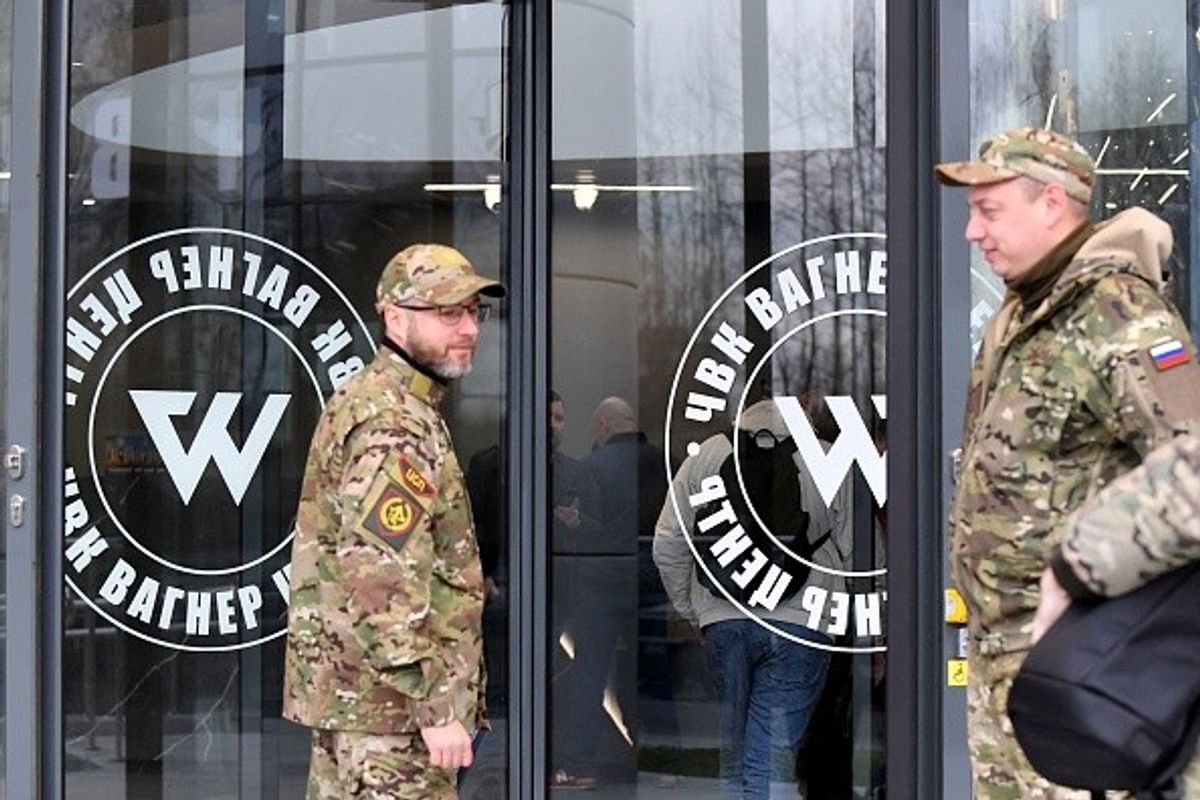BOTTOM LINE UP FRONT: Chinese Foreign Minister Qin Gang said at an annual parliamentary session in Beijing this week, that China is actively working to advance relations with Russia "as the world becomes more turbulent." The announcement comes as Western countries warn China against providing lethal aid to Russia in support of it's war in Ukraine. China has denied plans for arms transfers and has floated a proposal for a political settlement. As Chinese-Russian relations intensify, the world is left to wonder if expanded ties will enable Russia, either directly or indirectly, to sustain its aggressive military ambitions in Ukraine.
“I think China, with their peace proposal, — although a lot of it is disingenuous, we know that — it should be given a shot because China and Xi have influence on Russia,” said Ambassador Joseph DeTrani, one of several experts The Cipher Brief engaged for a discussion of what year two of the Ukraine conflict might bring, and the role China might play. “I think Xi can moderate Putin significantly,” DeTrani said. “There's an opportunity there, and I think we could use it and we could use it smartly. But just vilifying and making China the enemy and going into a new Cold War, is not going to address the issues in Ukraine.”
THE CONTEXT
- The U.S. and its allies recently warned China not to cross a “red line” by providing lethal aid to Russia to bolster Moscow’s military operations in Ukraine. These public cautions have been repeated in private to Chinese officials, reportedly with intelligence findings to back them up.
- China has been quick to deny the allegations, even as Beijing released a “position paper” proposing a framework for a political settlement. Responses to the proposal from Russian, Ukrainian, and Western officials have been less than enthusiastic, being described as “tepid” and “cool”.
- Intensifying China-Russia relations have been at the forefront of world attention since the announcement just before the Ukraine invasion, of a “no limits” friendship between the two countries.
- Last September, Chinese leader Xi Jinping vowed to Russian President Vladimir Putin that the two countries together would seek to “assume the role of great powers.”
- Chinese State Councilor Wang Yi last week, visited Moscow and in discussions with Putin noted the two sides would work to deepen “strategic cooperation.” Plans reportedly are under way for Xi to visit Moscow sometime this spring.
- Recent Chinese-Russian military exercises have been one sign of the two countries’ burgeoning partnerships. In December, a week-long joint live-fire naval exercise was held in the East China Sea, dubbed “Maritime Cooperation 2022.” More recently, naval forces from China, Russia, and South Africa began exercises off South Africa’s east coast that simulated air attacks on ships and hostage rescue operations. South Africa on February 23 abstained from a UN resolution calling on Russia to remove its troops from Ukraine.
- Most obvious are the array of economic and trade ties that increasingly link the two countries. Economic activity prompted by Western sanctions on Russia include growing Chinese consumption of Russian energy, Russian purchases of Chinese consumer goods and dual-use technology, and Russian adoption of the yuan, China’s currency, as a substitute for dollar-based business and financial transactions.
The Cipher Brief recently convened an Editorial Board on what comes next in Ukraine that included former MI6 Chief Sir Alex Younger, former principal Deputy Director of National Intelligence The Hon. Sue Gordon, Harvard Professor and author Graham Allison, Ambassador Joseph DeTrani, and retired CIA senior officer Paul Kolbe, among others.
Expert comments on the issue of Chinese support to Russia have been excerpted from the full conversation and have been lightly edited for length and clarity.
THE EXPERTS
Sir Alex Younger, former Chief of Britain's Secret Intelligence Service, MI6
Before serving as Chief of MI6, Sir Alex served as a career intelligence officer for 30 years in places like Europe, the Middle East, and Afghanistan. Younger was appointed Director of Counterterrorism in 2009, and served as Chief of MI6 from 2014 to 2020. Prior to SIS, Alex served in the British Army as an infantry officer.
The Cipher Brief: What do you think about the Biden Administration releasing intelligence on what it knows about China's intentions to deliver lethal aid? What are your thoughts on what has been done so far to declassify and share intelligence?
In principle, it's a great idea. I've loved seeing intelligence operationalized to such fantastic effect. That's what it's for. So it's good. I haven't seen the intelligence, so I don't know, but my suspicion is that this may not be as straightforward as you would like, in terms of its ability to cut through.
I personally think that Chinese President Xi Jinping is quite unlikely to want to bet the farm on this or try to reverse the trajectory through the strategic level provision of military support. I think that's extremely unlikely. I think what's more likely, is that they will wander over the start lines with the provision of various bits. And in those terms, I think it's extremely sensible for the U.S. to try and draw a red line.
The Hon. Susan Gordon, former Principal Deputy Director of National Intelligence
Susan M. Gordon spent more than 27 years at the CIA, served as Deputy Director of the National Geospatial-Intelligence Agency and served as the fifth Principal Deputy Director of National Intelligence (PDDNI), a Congressionally-approved position, before retiring from government service.
I agree with Alex on the one general trend of being willing to operationally use intelligence differently from how we have historically. I think that the trend is moving exactly in the right direction. I haven't seen the intelligence either. I think this would be a little bit more difficult. You'd have to have a pretty clear purpose in what you wanted to show.
Right now, we don't have a clear path to any sort of resolution and no path to resolution doesn't play well for either Ukraine or the West. Paul Pillar had a really nice article on this notion that if you want to find a truce, the two sides can't be too far apart. The person who is winning isn't going to give up any ground because they think they're winning and the person who is losing isn't going to accept something because they're not going to accept losing. Could you use the China piece to try and get them closer together?
I’m working with Mike Mullen on a CFR study on U.S. policy toward China vis-a-vis Taiwan. And I think the one thing that the Ukraine-Russia conflict has done, is that it has clarified that Taiwan actually is an interest. Before, it felt like our China policy was about China and being small and quiet so they didn't do anything provocative. But we weren't really talking about whether Taiwan itself was an interest. I think what's going on in Ukraine and Russia makes Taiwan an interest, which changes how we think about how aggressive we want to be in deterring China because I don't think the U.S. could sit by and have another market economy and another democracy fail.
Joseph DeTrani, former Special Envoy for Six Party Talks with North Korea
Ambassador Joseph DeTrani also served as former CIA director of East Asia Operations. He served as the Associate Director of National Intelligence and Mission Manager for North Korea and the Director of the National Counter Proliferation Center, while also serving as a Special Adviser to the Director of National Intelligence. He currently serves on the Board of Managers at Sandia National Laboratories.
The Cipher Brief: What do you think year two of the Russian-Ukraine conflict will bring, especially as it relates to the role that China might play?
China plays here in a significant way. For example, they came in with a peace proposal and lifting Western sanctions. Now, that's disingenuous given what China is doing with North Korea and the Security Council. But the fact of the matter is that Ukrainian President Volodymyr Zelensky said this is something he could discuss, ideally with Chinese President Xi Jinping. I don’t think it’s wise to just dismiss this proposal by China because I think we see China now saying they want to get their act together. I mean, after zero-COVID and the bumps in the road for China regarding its economic development and demographics and its credibility internationally, I think China wants to get their act together. I think Xi can moderate Putin significantly.
There's an opportunity there, and I think we could use it and we could use it smartly. But just vilifying and making China the enemy and going into a new Cold War, is not going to address the issues in Ukraine. It's not going to address the issues anywhere in the world. And I think we just have to get that piece right with China, and I think Xi understands that probably better than we do because he's got Taiwan on the horizon, and he knows what's happening with Taiwan. That has to be of concern to him, because his leadership depends on successfully managing the Taiwan issue.
Graham Allison, professor of Government at Harvard's John F. Kennedy School
Graham Allison is a Professor of Government at the John K. Kennedy School at Harvard University. He was the Founding Dean of the Kennedy School and until recently the Director of the School’s Belfer Center for Science and International Affairs. He is the author of Destined for War: Can America and China Escape Thucydides Trap?
If you were playing a strategic hand in Beijing, you would be about a peace initiative because you're in a complicated situation in which you say, on the one hand, sovereignty and territorial integrity are foundations that you say you hold to. And those are crucial for the thing you care most about, which is Taiwan.
On the other hand, you're entangled with Russia in this war as clearly their closest aligned and supportive country. Buying everything from them that they couldn't sell to the Europeans.
You are in his view, and also in Washington's view, in the fiercest rivalry of all time. Where other parties stand, in particular Europe, but also the so-called Global South matters a lot. So what would be your smart move? You would be the agent of peace with the peace proposal. Again, if it was total bullshit, he would still be doing this.
And I would say then the next question is, could I actually do something here? And I think it's quite plausible that Xi has thought about, we are now through the most important event in my lifetime, which is my coronation so I'm leader for life. What's my next act? So I'm getting my own economy going and that's now moving in the right way. What about a big international move?
So I wouldn't discount this. Actually I've tried to urge, since I want the war to be over because I'm afraid mostly about escalation of the nuclear war, I'm prepared to take the hit of his getting a success if he would be able to do it. And I've urged them to look at Teddy Roosevelt as an analogy. Now Teddy Roosevelt was American president, he's looking around what to do. There's the Japanese-Russian War. He has no role in any of this. But he nonetheless invites the two to come to Portsmouth and mediates peace. And for this, he won the first Nobel Peace Prize ever won by an American. The first Nobel Prize ever won, and it was the Nobel Peace Prize, which he won for this. So I've tried to dangle that for Xi as an idea.
Paul Kolbe, Former Director of The Intelligence Project at Harvard University’s Belfer Center for Science and International Affairs
Kolbe also led BP’s global Intelligence and Analysis team supporting threat warning, risk mitigation, and crisis response. Prior to joining BP, Kolbe served for 25 years as an operations officer in the CIA. He was a member of the Senior Intelligence Service, wokring in Russia, the Balkans, Indonesia, East Germany, Zimbabwe, and Austria.
The Cipher Brief: What do you think are the prospects for China’s proposed political settlement of the Ukraine conflict in light of the simultaneous concerns over Chinese lethal aid and the complications of the Taiwan issue?
I don't for a minute think that there's any chance that Chinese troops will show up in Ukraine. But it goes back to the question, could China tip the balance by providing Putin with that which he does not have, that is, the industrial capacity to carry this on in the face of the supply coming in from NATO? The question is, does China eventually become an arsenal of autocracy?
I don't know the answer to that. I suspect Alex is probably right, that a lot of things might prevent China from doing that. I have a couple questions on the so-called peace plan. The first is, who is China talking to? When they talk about respecting sovereignty as number one, are they talking to Russia, talking to Ukraine?
It feels like it's probably addressed to NATO. When they come up to the line on Cold War mentality. The first line of it could have been written by Steven Walt when it said that the security of a country must not come at the expense of others. Is that addressed to Russia? It doesn't seem like it, but certainly most of the statements could be cut both ways. When it talks about nukes, obviously he is talking to Russia and the West since Ukraine doesn't have them. Ironically, Ukraine already gave them up and was guaranteed security by China in that deal.
It's not just for the President anymore. Are you getting your daily national security briefing? Subscriber+Members have exclusive access to the Open Source Collection Daily Brief, keeping you up to date on global events impacting national security. It pays to be a Subscriber+Member.
Cipher Brief Senior Editor Ken Hughes contributed to this report.
Read more expert-driven national security insights, perspective and analysis in The Cipher Brief


















